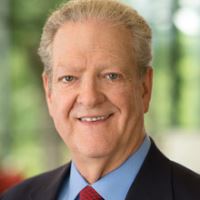Commentary on Psalm 93
Yahweh malak.
After almost thirty years of ministering to the dead-language-impaired, I still marvel at the problems associated with the first two words of Psalm 93, two of the very first words one learns in the study of Hebrew.
Virtually every translation simply and elegantly renders these words, as does the NRSV, “The LORD (“Yahweh”) is king.” Yet, the reading “Yahweh has become king” is frequently encountered in the commentaries and scholarly literature. The discussion centers on important theological implications.
1. “Yahweh is king” is unusual in that if the subject precedes the verb, that the verb would normally be an imperfect (Proverbs 8:15), an active participle (Psalm 22:28, but with mashal not malak), or, usually, simply a noun, (melek). Its overwhelming support in Bible translations probably betrays an exegetical unease with God becoming king. Was there a time when God was not king? Scholars favoring this line of approach tend to see similar psalms proclaiming God’s rule (47; 93; 95-99) as “kingship psalms” that emphasize God’s ongoing rule.
2. Others favor seeing these psalms as “enthronement psalms” that commemorate Yahweh’s ascent to the throne. Mowinckel’s suggestion, that Israel celebrated this enthronement in an annual festival in the fall where Yahweh became king once again, provides a solution to the translation problem at the cost of adopting yet one more hypothetical liturgical setting for the psalms. It is better to recognize that both translations seek to announce the enduring kingship of God rather than the time of its inception.
3. The interpretation of this short, five verse psalm is also hampered by the debate over the place of the ancient near eastern mythological background that may or may not dominate the central verses. Some see this imagery as an indication that Israel has transformed an ancient Canaanite myth in which Baal becomes king following his defeat of Yam, the rebellious sea-god. Others deny such a connection and explain the psalm in terms of God’s creative activity, as in Genesis one, with regard to the natural oceans. If such Canaanite mythology actually lies behind this psalm, the translation “Yahweh has become king” would seem to make the most sense, at least here, where the mythological imagery may be present.
A minor indication of liturgical usage may be seen in the unusual shift in address displayed in the psalm. God is addressed directly in verses 2, 3, and 5, but is spoken about in verses 1 and 4. One chuckles at the thought of old school pastoral presence in the days when altars were fastened to the East wall of the sanctuary and the minister was required to face the altar when representing the people, but turning to face the people when representing God. Such liturgical representation would require four turns in the space of five verses. In the psalm, however, such changes in addressee suggest a distribution of speaking roles among the liturgical officiants.
The interpretation of Psalm 93, apart from the vexing problems of setting and context above, is straightforward. Declarations of the eternal nature of Yahweh’s reign (“from everlasting” verse 2; “forevermore,” literally “for length of days” verse 5), as well as its stability (“established” verse 1 and “never be moved” verse 2 are the same word in Hebrew; “very sure” verse 5) frame two verses employing watery imagery, whether of a mythological or natural quality (3), to reassert the supreme majesty of Yahweh (4). Thus, Psalm 93 serves as a hymn that praises Yahweh’s kingship. That kingly power is illustrated in three ways:
1. Verses 1-2 announce the stability the world enjoys as a direct result of God’s rule.
2. Verses 3-4 attest God’s defeat of the chaos represented by the watery abyss. Their power is indicated through the device of “staircase” parallelism in which the scheme is ABC, ABD, ABE where A is the “flood,” B is the verb “lift up,” and C, D, and E move to a climax after the repeated initial subject and verb. Nevertheless, Yahweh is “more majestic” than even this most powerful and unpredictably chaotic force.
3. Verse 5 subtly shifts from creation to governance. Yahweh’s “decrees” match his reign in stability as they are “very sure.”
Regardless of what one thinks about such matters, there are two moments in the history of the universe when one can literally say Yahweh malak: at the creation of the universe and at the end of history. The Sunday of Christ the King liturgically celebrates the latter of these as the church year comes to an end. Daniel 7:14 announces “to him was given dominion and glory and kingship.” Does our psalm, emphasizing the former, say anything less?

November 22, 2009